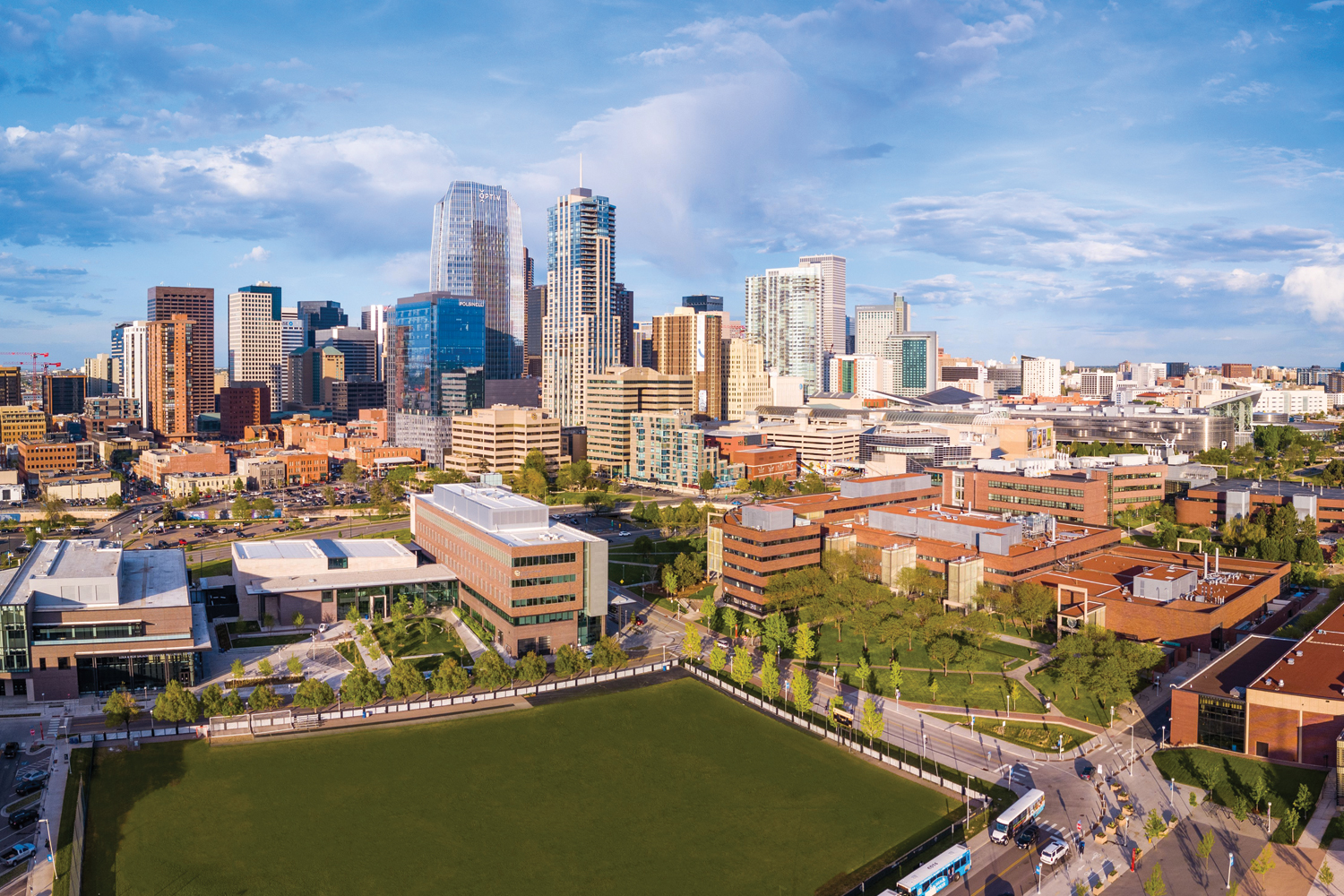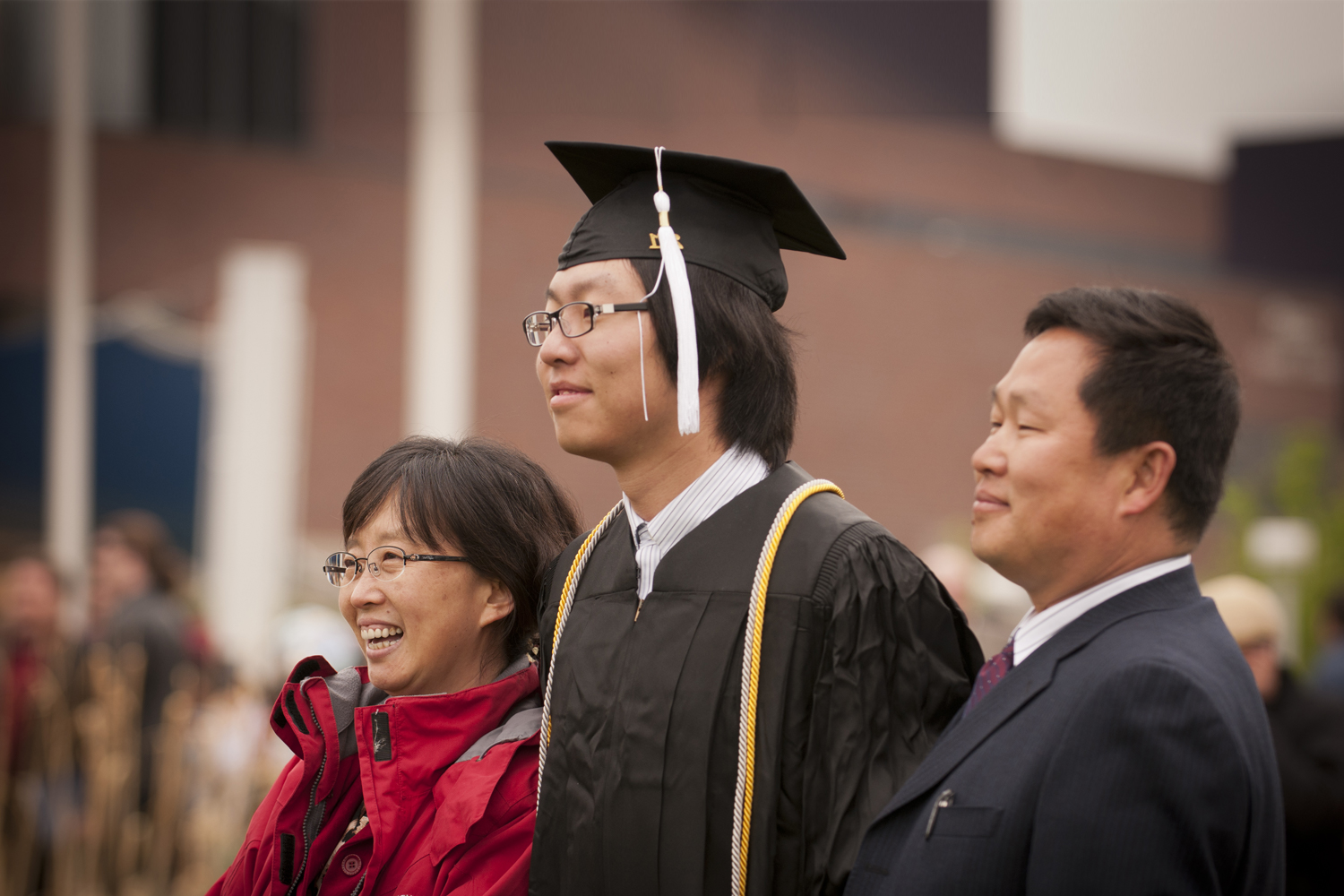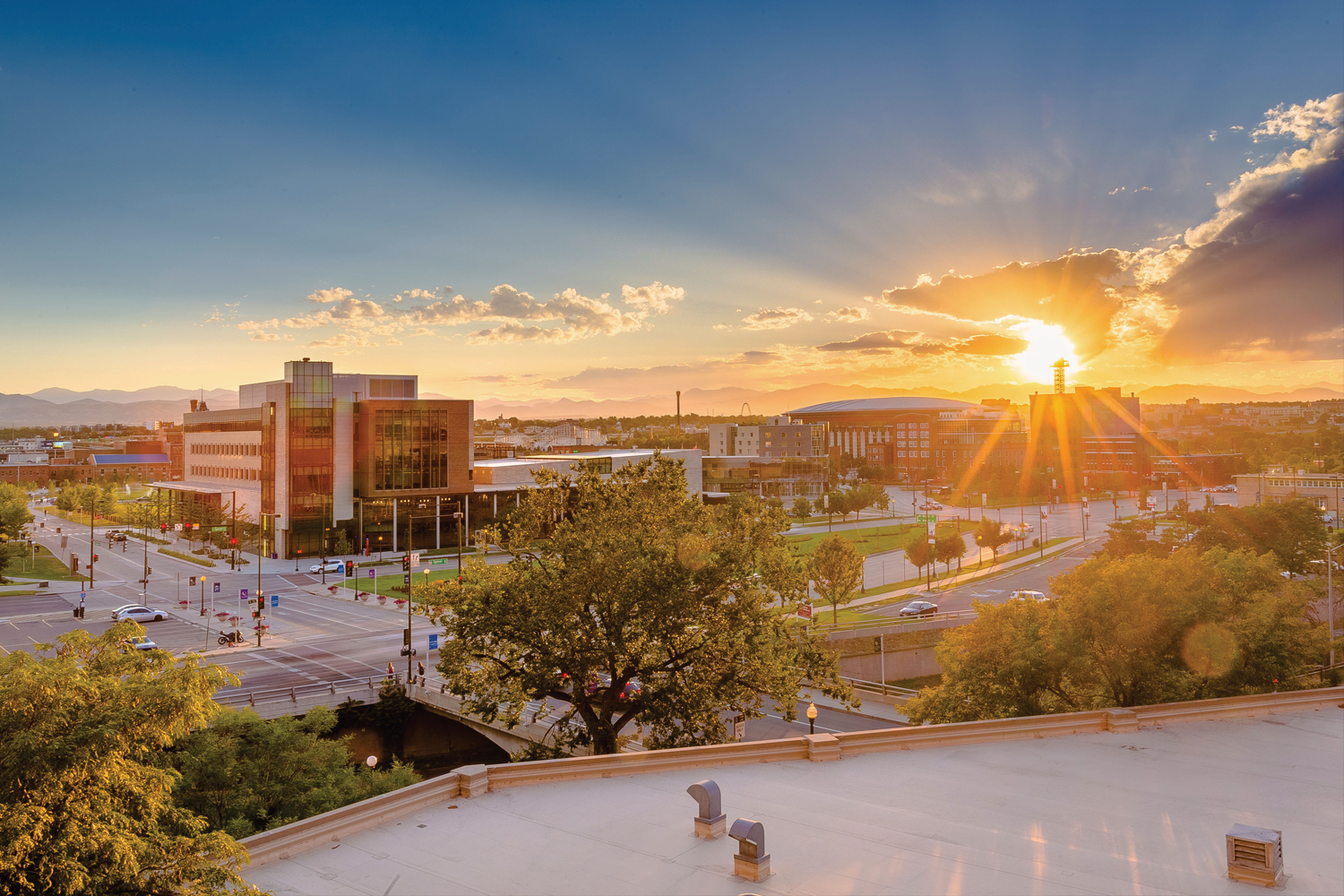Arrival in Denver
To ensure a successful start to your academic career at the University of Colorado Denver, you will find detailed information regarding the next steps as you prepare for departure to the U.S. and upon arrival in Denver. In addition, you will find information about various topics, such as the visa application process, coming to the U.S. port of entry, housing, health insurance, academic advising, registering for classes, and much more.
For more information, make sure to complete the Required Online International Student Orientation.
Note: for VISA application, currently, ISSS is monitoring embassies and consulates and their ability to issue visas for the upcoming semesters. ISSS will communicate any updates we are aware of regarding your courses.
Contact ISSS if you have any questions regarding immigration and VISAs.
On behalf of the International Student & Scholar Services (ISSS) unit within the Office of International Affairs (OIA), we are excited to have you join us for the upcoming academic year! You will soon become part of an international community that includes nearly 1,500 international students and scholars of almost 100 different countries. We trust you will find your time here rewarding and complementary to your personal and professional goals.
Students applying for F-1 or J-1 visas for initial attendance at a university must first pay the I-901 SEVIS fee of $350 for F-1 students and $220 for J-1s. We recommend that you pay the fee on-line. This fee should be paid prior to making a visa appointment at the U.S. Embassy or Consulate. F-2 and J-2 spouses and dependent children DO NOT have to pay this fee. You must take your fee receipt for proof of payment to your visa appointment. Payments can be made on-line by using a credit card, by mail or by Western Union. If paying by Western Union or mail, please keep in mind that it will take several weeks to get a receipt; please pay this fee early to avoid delays. Please visit www.fmjfee.com to pay the fee and complete an I-901 form.
Hints for filling out the I-901:
- Double-check that the information on the I-20 or DS-2019 is correct.
- If it is not, do NOT pay the fee and contact CU Denver’s International Student & Scholar Services to correct the I-20 or DS-2019.
- The school code is DEN214F00301000 (for F-1s) or P-1-03858 (for J-1s).
- Your SEVIS number is in the top, right-hand corner and begins with N00.
- Print at least two copies – one to take to the Embassy or Consulate and one for your records.
If you have applied to more than one school, you must decide which school you will attend and pay the SEVIS fee using that school’s information. If you are denied a visa, you cannot get a refund of your SEVIS fee. If you decide to reapply for a visa within the next 12 months, you will not have to pay the fee again.
Schedule a visa interview appointment as soon as possible with the US Consulate where you plan to apply for your student visa. Visit the Department of State website at https://travel.state.gov to see the estimated wait time for the Embassy or Consulate nearest you. You can find specific information about the consulate, appointment process, application forms, and visa fee at https://travel.state.gov.
IF you are a citizen of Canada or Bermuda, you do not need a physical VISA stamp. An electronic I-94 arrival record will be created for you upon entry into the U.S.
Preparing for Your Student Visa Interview
Carefully consider why you want to study in the U.S., how the degree that you have chosen to pursue will help you, and why you selected the college or university that you will attend.
F-1 and J-1 student visas are temporary visas for individuals whose primary purpose is to study in the U.S. You will need to show that you intend to return home after completing your studies and any practical or academic training.
- Be prepared to discuss what you plan to do when you finish your program of study.
- Be ready to show close ties to your home country through family, friends, community relations, land or property, and job opportunities.
Learn as much as you can about the school you will be attending and the academic program you will be enrolled in. We encourage you to explore the following websites:
- Office of International Affairs Newsroom - You’ll find great stories with plenty of links to topics and resources that will be relevant to you as an international student at CU Denver.
- Life in Denver
- Life in Colorado
- Explore CU Denver Programs - We also encourage you to participate in pre-arrival webinars and question and answer sessions.
Required Documents
Bring the documents listed below to your interview.
- Your original Form I-20, “Certificate of Eligibility for Nonimmigrant Student Status,” signed by a Designated School Official and by you. Review comprehensive information about the Form I-20.
- Passport, valid for travel to the United States.
- Form DS-160, “Nonimmigrant Visa Application,” confirmation page.
- Department of State visa application fee payment receipt, if you are required to pay before your interview. Review specific information about the consulate, appointment process, application forms, and visa fee.
- Proof of SEVIS fee payment.
- Photograph(s) that meets all requirements.
Optional Additional Documents
- Evidence of your academic preparation, which may include transcripts, diplomas, degrees, or certificates from schools you attended and standardized test scores required by your U.S. school.
- Evidence of your English language proficiency, such as test scores or certificate of completion for an ESL course.
- Documents that confirm your financial and personal ties to your home country. F-1 and J-1 status require proof of “non-immigrant intent.” In other words, you need to show that your intent is to return to your home country after you complete your degree and engage in any practical training opportunities that may be available to you.
- Strong financial support documents and/or bank statements.
- If you are financially dependent on someone else (a parent, for example), proof of relationship with the individual providing financial support such as a birth certificate is necessary along with the sponsor’s salary documentation and job details.
- Additional documents that you’ve received from the school you will attend like your admission letter or scholarship award letter.
What to Expect at the Interview
You can expect your visa interview to last only a few minutes. The consular officer will be focused on two things:
- What is your intent on studying in the US?
- Can you afford your stay in the US?
Be ready to briefly and articulately answer the questions you are asked. Your answers should match the documentation you submit, or what you wrote on your DS-160. You should be prepared to present additional documentation if requested but should not rely on this documentation.
Consular officials are trained to evaluate the person applying for the visa and not the documents that they present. They are trained to be very skeptical of documentation, which is viewed as potentially unreliable.
Entering the U.S.
If Your Visa Application Is Denied
Our hope is that your F-1 or J-1 visa application will be successful. If your application is denied, you will receive a notice stating the reason. Please review the list of ineligibilities. Understanding the reason for the denial will allow you to take the necessary steps to improve your chances for approval if you decide to apply again.
Entering the United States
You must enter the U.S. BEFORE the reporting date on your I-20 or DS-2019. You may enter the U.S. up to 30 days before the reporting date. Arriving early will allow you time to settle into the Denver area before the start of school. ISSS begins issuing immigration documents approximately 6 months before the start of the term for which you’ve been admitted.
8 CFR 214.2(f)(1)(i)(C) states that for or students seeking initial admission only, the student must intend to attend the school specified in the student's visa stamp or, where the student is exempt from the requirement for a visa, the school indicated on the Form I-20.
If you are an F-1 student and have received an "Initial" (not "Transfer Pending") I-20 and have applied and received your visa stamp, the name of the school listed on the visa stamp must match the school you plan on attending. If your F-1 visa stamp indicates a different school than the one you will be attending, you must apply for a new visa, rather than transferring after entering the U.S.
Important documents for your carry-on luggage.
- Passport
- I-20/DS-2019
- Evidence of financial resources
- Evidence of student status, such as recent tuition receipts, transcripts or proof of registration
- Paper receipt for the SEVIS fee, Form I-797 (if Applicapable)
- Name and contact information for your Designated School Official
You can also read more about what will happen at the Port of Entry at the ICE website.
Traveling to the U.S. with a Sufficient Amount of Money
When you travel to the U.S., be prepared with enough of U.S. currency to pay for your first meals, transportation, and incidentals. A credit card that you can us in the United States will also be helpful. Study the US exchange rates prior to your trip to the US so you are prepared to handle your travel and settling expenses.





